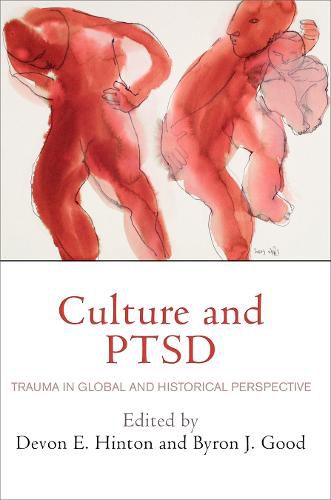Readings Newsletter
Become a Readings Member to make your shopping experience even easier.
Sign in or sign up for free!
You’re not far away from qualifying for FREE standard shipping within Australia
You’ve qualified for FREE standard shipping within Australia
The cart is loading…






Since the 1970s, understanding of the effects of trauma, including flashbacks and withdrawal, has become widespread in the United States. As a result Americans can now claim that the phrase posttraumatic stress disorder (PTSD) is familiar even if the American Psychiatric Association’s criteria for diagnosis are not. As embedded as these ideas now are in the American mindset, however, they are more widely applicable, this volume attempts to show, than is generally recognized. The essays in Culture and PTSD trace how trauma and its effects vary across historical and cultural contexts.
Culture and PTSD examines the applicability of PTSD to other cultural contexts and details local responses to trauma and the extent they vary from PTSD as defined in the American Psychiatric Association’s Diagnostic and Statistical Manual. Investigating responses in Peru, Indonesia, Haiti, and Native American communities as well as among combat veterans, domestic abuse victims, and adolescents, contributors attempt to address whether PTSD symptoms are present and, if so, whether they are a salient part of local responses to trauma. Moreover, the authors explore other important aspects of the local presentation and experience of trauma-related disorder, whether the Western concept of PTSD is known to lay members of society, and how the introduction of PTSD shapes local understandings and the course of trauma-related disorders.
By attempting to determine whether treatments developed for those suffering PTSD in American and European contexts are effective in global settings of violence or disaster, Culture and PTSD questions the efficacy of international responses that focus on trauma.
Contributors: Carmela Alcantara, Tom Ball, James K. Boehnlein, Naomi Breslau, Whitney Duncan, Byron J. Good, Mary-Jo DelVecchio Good, Jesse H. Grayman, Bridget M. Haas, Devon E. Hinton, Erica James, Janis H. Jenkins, Hanna Kienzler, Brandon Kohrt, Roberto Lewis-Fernandez, Richard J. McNally, Theresa D. O'Nell, Duncan Pedersen, Nawaraj Upadhaya, Carol M. Worthman, Allan Young.
$9.00 standard shipping within Australia
FREE standard shipping within Australia for orders over $100.00
Express & International shipping calculated at checkout
Since the 1970s, understanding of the effects of trauma, including flashbacks and withdrawal, has become widespread in the United States. As a result Americans can now claim that the phrase posttraumatic stress disorder (PTSD) is familiar even if the American Psychiatric Association’s criteria for diagnosis are not. As embedded as these ideas now are in the American mindset, however, they are more widely applicable, this volume attempts to show, than is generally recognized. The essays in Culture and PTSD trace how trauma and its effects vary across historical and cultural contexts.
Culture and PTSD examines the applicability of PTSD to other cultural contexts and details local responses to trauma and the extent they vary from PTSD as defined in the American Psychiatric Association’s Diagnostic and Statistical Manual. Investigating responses in Peru, Indonesia, Haiti, and Native American communities as well as among combat veterans, domestic abuse victims, and adolescents, contributors attempt to address whether PTSD symptoms are present and, if so, whether they are a salient part of local responses to trauma. Moreover, the authors explore other important aspects of the local presentation and experience of trauma-related disorder, whether the Western concept of PTSD is known to lay members of society, and how the introduction of PTSD shapes local understandings and the course of trauma-related disorders.
By attempting to determine whether treatments developed for those suffering PTSD in American and European contexts are effective in global settings of violence or disaster, Culture and PTSD questions the efficacy of international responses that focus on trauma.
Contributors: Carmela Alcantara, Tom Ball, James K. Boehnlein, Naomi Breslau, Whitney Duncan, Byron J. Good, Mary-Jo DelVecchio Good, Jesse H. Grayman, Bridget M. Haas, Devon E. Hinton, Erica James, Janis H. Jenkins, Hanna Kienzler, Brandon Kohrt, Roberto Lewis-Fernandez, Richard J. McNally, Theresa D. O'Nell, Duncan Pedersen, Nawaraj Upadhaya, Carol M. Worthman, Allan Young.